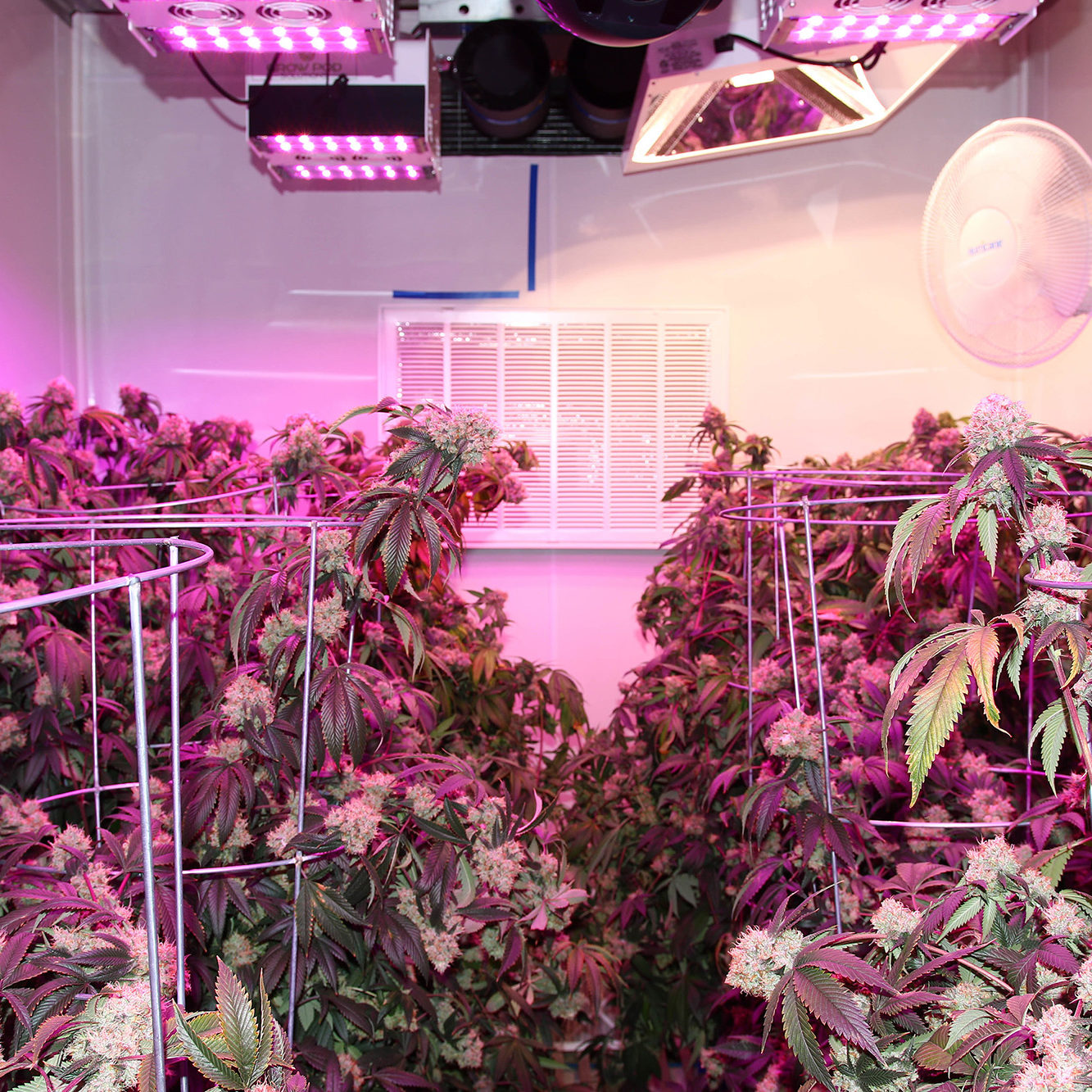Could The Future of Cannabis Growing Be In Containers?

Important Part of Containers on Marijuana Growing
As the Cannabis market expands, container shipping grows will have an important part to play.
It’s no surprise the cannabis market is set to grow. The wave of cannabis legalization is sweeping across the USA but also Canada, the Carribean, Latin America and Europe. According to Grand View Research, the global market could be a whopping $66 billion by 2023. US legal cannabis market alone was valued at $11.9 billion in 2018 and is expected to grow at a CAGR of 24.1% from 2019 to 2025. The number of states with legal recreational pot is expected to hit 20 by 2024, with 13 of them on track to be billion-dollar-plus markets by then.
How can the industry meet this growth? The obvious answer is “grow more!”, but the response is “where?”. Space for outdoor grow is limited and rapidly being eaten up. Indoor grows are, of course, popular whether that’s in greenhouses or converted warehouses and it’s likely these will spearhead growth in America.
Container shipping is a vital sub-sector of the indoor market. It’s difficult to argue that it will be the #1 form of marijuana agriculture but it will be an important sector with a vital role to play. In some particular instances, it may indeed become critical.
Let’s Go Inside
With mainstream agriculture, major retailers have begun the shift to indoors farming, with even Wendy's removing the risk factors associated with outdoor agriculture and unpredictable weather, and providing itself with a constant supply of fresh produce by switching to indoor farming.
Wendy's action mirrors the growing trend to source food locally. Not only do consumers like the idea of supporting local farms, but businesses are also welcoming local suppliers as a way to improve quality, cut costs, and increase margins.
A shipping container is a sealed system – eliminating the need for pesticides, herbicides, and additives commonly required on traditional farms. The purified environment eradicates any chance of cross-contamination, unwanted pollination, or impurities like those that caused the recent outbreak of E. Coli on lettuce.
With controlled shipping container farms, food production becomes predictable and reliable without the need for pesticide or herbicide. And what’s true for food production is equally true for marijuana.
In many instances, notably for medical marijuana production, having a surgically clean growth environment can be an important selling point. For others needing to maximize yield, growing in clean environments can be a critical part of the business model.
All About Control
Only with a shipping container can you have maximum control over the crop and the environment. The container is tightly sealed and insulated so you have perfect temperature control. With humidity control the moisture in the air can be monitored continually. And, of course, being indoors you can control light according to the phase of growth, maximizing yield.
The other major advantage of the shipping containers is that it provides both flexibility and control.
Let's say your operation isn’t working out in cannabis-crowded Colorado. With a container farm you can literally take the entire operation on a truck to a new location in a day. You can be up and running without interruption.
Educating the Market
As this market expands, what it will be most in need of is people committed to growing cannabis commercially. A recent Forbes article highlighted that over 200,000 people are employed full time in the cannabis industry. The industry added more than 64,000 jobs in 2018- a 44% increase. Where is the next wave of weed workers and professionals going to come from? Pretty soon there simply won’t be enough people with hands-on experience of what makes a good bud or a good yield.
Most of these professionals are currently growing at home, perhaps experimenting with a few strains in their spare room. When they step up they will need a space to learn whilst they grow as professionals. It is perhaps for this reason that many home growers are teaming up to share a shipping container space. This allows the team to step up without being burdened with the vast debt involved in building a whole farm.
Keep it Local
Even as the market expands it won’t be able to reach everywhere. Cannabis is legalised in Alaska, but largely has to be imported. The same is true for much of northern Canada. The freshness of local cannabis, of course, is rarely an issue for the consumer but transportation adds to costs, especially as interstate commercial movement of cannabis is complex. The issue here is not just arctic cannabis but also access to cannabis in rural areas or places where outdoor grows are impossible.
In these cases, there is a strong argument for growing marijuana locally. In the same way, it’s clear from experiences in Colorado and California that markets will develop differently. In these situations, growers will need to find a way to be flexible enough to respond and have the ability to be scalable. This is important at all levels, from understanding the details of legalization all the way to knowing which strain is most appropriate for the market you’re in.
In these situations growers will need to couple strong local knowledge with flexibility - a container farm will often be the best approach.
Here to Stay!
Container farming is a vital part of the agricultural arsenal as this market explodes. It’s not just here in America either - it's also Canada, Europe, even Australia. Container farms will be part of the cannabis story everywhere from rural Washington State to the Arizona desert.
Container farms for cannabis will be most successful where growers can commercially use them to their strengths - flexibility, control and their undoubted ability to maximize yield and quality.
Grow Marijuana in Indoor Shipping Containers!
Learn how to grow cannabis seeds and efficiently the temperature, water, lighting and soil.
Enter Marijuana Growing Courses Today!
Address
Micro Lab Farms
3353 Needles Hwy
Needles, CA
(951) 266-6096
